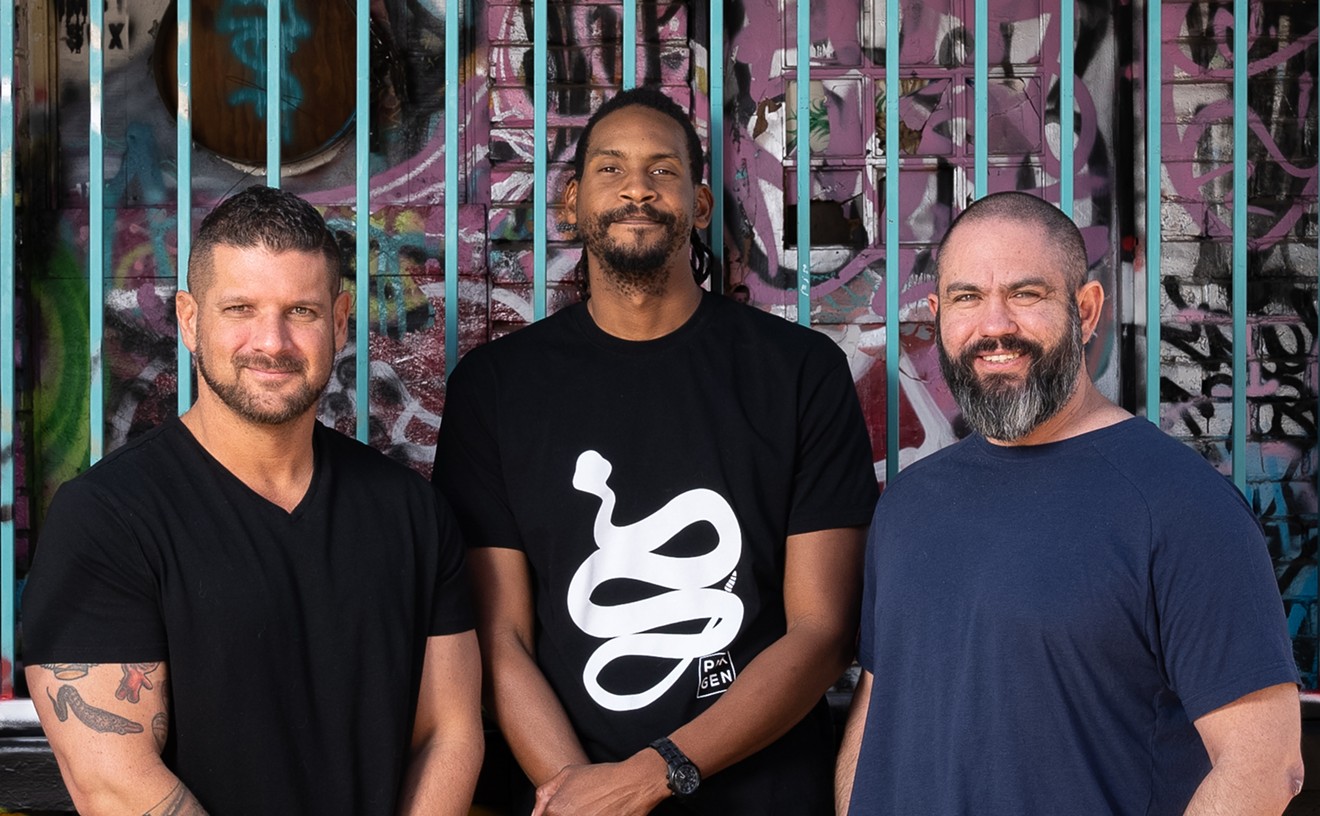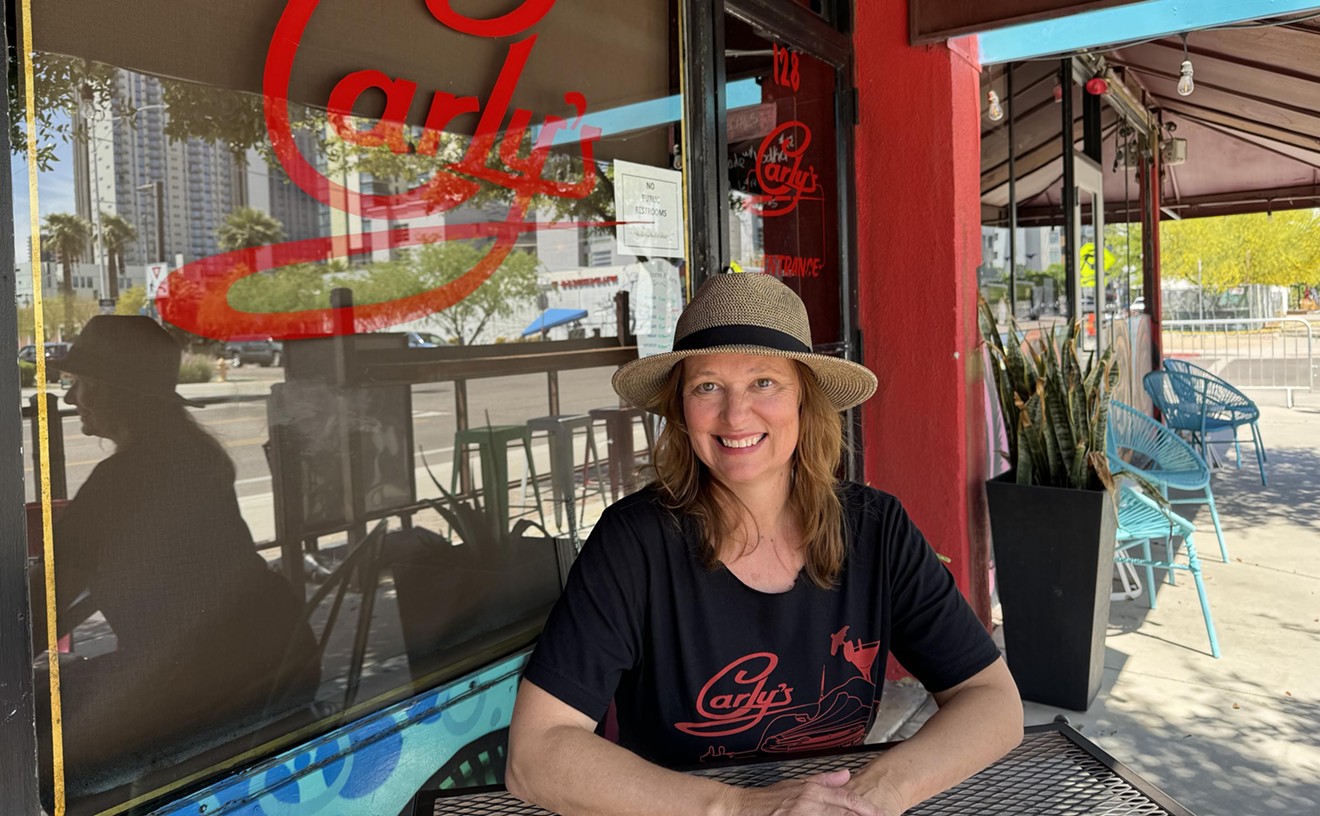On Saturday, March 7th, Grow Phoenix hosted its first-ever Grow Your Own Food Summit. The symposium, which featured talks from local garden experts, was appealing to both seasoned gardeners and novices alike. The topics explored were as diverse as the audience, and included seed saving tips, gardening philosophy, and information about how to raise animals within city limits. A 100% local lunch, catered by Chef Aaron Chamberlain of St. Francis, sealed the deal for us.
If you missed it, don't worry -- Grow Phoenix is planning another summit for Fall 2015, and have plenty of opportunities to learn about urban farming on the docket between now and then.
Here are a few cool things we learned about growing food in the desert.
See also: Maya's Farm in Phoenix Now Selling Plant Starts for 11 Organic Heirloom Tomato Varieties
Phoenix-Grown Food Can Be Delicious Our favorite part of growing food is eating it -- duh. The lunch served at the summit was catered by Chef Aaron Chamberlain of St. Francis. It was comprised of 100% Phoenix-local ingredients, and moreover, it was absolutely delicious. Hayden Flour Mills wheat berries, assorted root and springtime veggies from Maya's Farm, and a McClendon's Select Honeybell Tangelo vinaigrette formed a salad that was sweet, tangy, smoky, and hearty- without being too heavy. Chef Chamberlain also included a macaron in each box, flavored with fresh herbs (basil and lavender) from his own garden.
Saving Seeds Is Easier (and Way More Important) Than You Might Think. Did you know that 3 companies own over 78% of the world's seeds? That's pretty disturbing. But husband-and-wife seed superduo BIll McDorman and Belle Starr have some thoughts about how we can preserve our local food traditions. The first step towards accomplishing this goal? Preserve local seeds. McDorman and Starr run Seed Save, a non-profit dedicated to teaching residents of the Rocky Mountain West (hey, that's us!) how to - you guessed it - save seeds. They taught the audience how to save seeds from three easy plants - tomatoes, beans, and lettuce - and how to naturally select for preferable traits for future generations. If you're interested in learning more about how to do this in your own home, the couple will be hosting Seed School in a Day on March 28th. For more information, visit seedsave.org.
Developing A Strong Local Food Supply Is Critical. Greg Peterson of The Urban Farm delivered a great talk on the importance of developing local permaculture. Peterson shared some pretty shocking statistics about our food system. For example, most Metropolitan areas have a food supply that would last only three days - so if our current system breaks down, we're in trouble. According to Peterson, over two-thirds of our fruits and vegetables come from overseas, and the US imports 4 billion pounds of food from China each year. This food has to travel over 7200 miles to get to us. The fossil fuels burned to move food from China to the United States pollutes the environment, and the food itself may also be polluted. Peterson stated that 20% of Chinese Farmland and over 90% of China's water supply is contaminated with heavy metals. Yikes. For more information about joining the movement to create a more independent food supply, consider taking advantage of the Urban Farm's books and classes.
Every Yard Should Have Chickens (and Maybe Goats) ... and Kari Spencer, a Master Gardener and founder of The Micro Farm Project, can tell you why. Not only do chickens produce eggs and help keep weeds and pests at bay, their waste makes for awesome fertilizer. Glendale, Chandler, and dwellers of areas with Home Owners' Associations: you're out of luck here. But if you live in Phoenix, you should be good to keep at least a few birds with your neighbors' permission. Kari was full of tips for keeping goats, quail, and chickens, including information about which breeds to buy for small spaces and how to best use these animals for the health of your garden. For more information, visit http://www.themicrofarmproject.com/.
See also: A Hipster's Guide to Farm Animals
Wood Chips Are Amazing. Jake Mace is a backyard trial-and-error gardener, tai-chi instructor, and basically a spokesperson for wood chips as a gardening tool. Mace started using wood chips in his home garden about two years ago, and has seen amazing results. He started with about 10 trees; he now has over 100 trees, but uses fifteen to twenty times less water now than he did before. Mace credits the mulch for helping his plants hold moisture. The wood chips also add to the humidity level of the garden, which attracts lizards to help keep scorpions and other pests at bay. Woodchips aid with insulating plants from both heat and cold. And! When wood chips are breaking down in your garden, they're not breaking down in a dump - so they're helping the local environment. For more information, or to see how Mace has put his chips to good use, check out his Youtube channel.
And Last but Not Least, What Southwest Gardens Need To Be Successful. Kari Spencer delivered a second talk that was perfect for beginning gardeners, or for those new to the region. This talk focused on the unique conditions that we face here in the Sonoran desert - and how to manage them using organic means. For example, when you water makes a huge difference in how effectively your plants actually use the water you give to them. Spencer recommends watering in the morning, as the stoma of plants open with sunlight, and they are able to absorb the water throughout the day. When plants are watered at night, they're unable to effectively take in the water until the next morning - when it might have already evaporated. We recommend checking out Grow Phoenix's webinar series for more on the subject.










